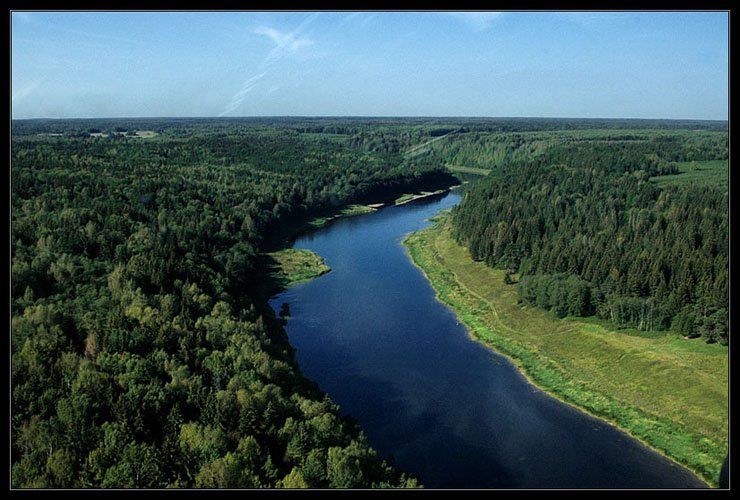Bird's-eye View Of Russia
|
Most of Russia consists of vast stretches of plains that are predominantly steppe to the south and heavily forested to the north, with tundra along the northern coast. Russia possesses 10% of the world's arable land. Mountain ranges are found along the southern borders, such as the Caucasus (containing Mount Elbrus, which at 5,642 m (18,510 ft) is the highest point in both Russia and Europe) and the Altai (containing Mount Belukha, which at the 4,506 m (14,783 ft) is the highest point of Siberia outside of the Russian Far East); and in the eastern parts, such as the Verkhoyansk Range or the volcanoes of Kamchatka Peninsula (containing Klyuchevskaya Sopka, which at the 4,750 m (15,584 ft) is the highest active volcano in Eurasia as well as the highest point of Asian Russia). The Ural Mountains, rich in mineral resources, form a north-south range that divides Europe and Asia.
Russia has an extensive coastline of over 37,000 km (22,991 mi) along the Arctic and Pacific Oceans, as well as along the Baltic Sea, Sea of Azov, Black Sea and Caspian Sea. The Barents Sea, White Sea, Kara Sea, Laptev Sea, East Siberian Sea, Chukchi Sea, Bering Sea, Sea of Okhotsk, and the Sea of Japan are linked to Russia via the Arctic and Pacific. Russia's major islands and archipelagos include Novaya Zemlya, the Franz Josef Land, the Severnaya Zemlya, the New Siberian Islands, Wrangel Island, the Kuril Islands, and Sakhalin. The Diomede Islands (one controlled by Russia, the other by the U.S.) are just 3 km (1.9 mi) apart, and Kunashir Island is about 20 km (12.4 mi) from Hokkaidō, Japan.
Russia has thousands of rivers and inland bodies of water providing it with one of the world's largest surface water resources. The largest and most prominent of Russia's bodies of fresh water is Lake Baikal, the world's deepest, purest, oldest and most capacious fresh water lake. Baikal alone contains over one fifth of the world's fresh surface water. Other major lakes include Ladoga and Onega, two of the largest lakes in Europe. Russia is second only to Brazil in volume of the total renewable water resources. Of the country's 100,000 rivers, the Volga is the most famous, not only because it is the longest river in Europe, but also because of its major role in Russian history. The Siberian rivers Ob, Yenisey, Lena and Amur are among the very longest rivers in the world.
|
|









